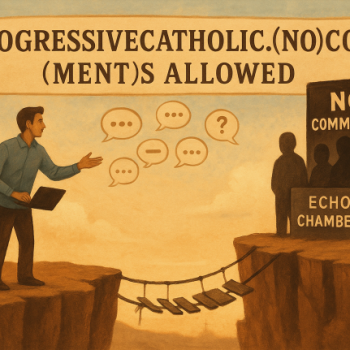GODSTUFF:
WE’RE ALL HYPOCRITES, AND THAT’S THE GOOD NEWS
Mel and Mark and Ted and . . . the rest of us.
We’re all hypocrites.
Don’t shake your head “no.” Be honest.
(Consider this a safe space. For the next 800 words, we promise not to judge you. You’re among friends.)
Maybe your hypocrisy isn’t of the sexy variety that lands the unfortunate few on the front page of the National Enquirer or the New York Times, as was the case with Mel Gibson, Rep. Mark Foley, and most recently, the Rev. Ted Haggard.
Maybe you are a militant vegetarian — the sort that tut-tuts when friends order a steak — but every once in a while you enjoy an illicit cheeseburger in the privacy of your own car.
Maybe you tell everyone that ending the cycle of disease and poverty in the Third World is the greatest moral challenge we face today, but so far all you’ve done to further that goal is buy a rock-star-designed T-shirt.
Maybe it’s something even more benign than that. Or perhaps it’s much nastier.
Whatever it looks like, we all have it. Somewhere.
If hypocrisy is universally practiced, why is it also universally loathed?
As I often do with these spiritual-ethical conundrums, I turned to my God Squad, a team of professional religious folks who have been rigorously trained for puzzlers such as this.
My first call was to Lallene Rector, a psychology of religion professor and dean of my alma mater, Garrett-Evangelical Theological Seminary in Evanston.
“For starters, it’s a matter of human nature,” Rector said. “We have this inclination to — to use a technical term — ‘split’ in our psyches.”
She pointed to St. Paul’s description of this phenomenon in the biblical Book of Romans where he lamented: “I want to do what is good, but I cannot do it. I do not do the good thing I want to do, but I do the wrong thing that I do not want to do.”
“When people have the strongest reactions to [hypocrisy], I always take that as a red flag,” Rector said. “It’s a ‘protective’ response. In other words, it’s too painful for me to recognize the hypocrisy in my own life, therefore I can put my energy into damning it in the other person.”
Rabbi Irwin Kula, co-founder of the Aitz Hayim Center for Jewish Living in Chicago and author of the wonderful new book Yearnings: Embracing the Sacred Messiness of Life, says hypocrisy is, in essence, our natural state.
“Hypocrisy is when there’s a gap between what your stated intention is and what you do, OK? But that’s also the nature of what it means to be human,” Kula said. “In Jewish life, when you call someone a hypocrite, you say, ‘Of course. How could I be anything but a hypocrite?’ “
We spend our lives in the middle, in the “gap,” indulging seemingly harmless hypocrisies and headline-grabbing, empire-toppling hypocrisies with equal aplomb, the rabbi says.
“Hypocrisy is just a nasty word for saying that there is a gap between what we really, at some place in ourselves, know is the right thing to do and whatever we’re doing. And if you don’t have that gap, there’s something wrong with you. Because it either means you have no conscience at all . . . or you are so unbelievably, out-of-touch arrogant.”
Each of us keeps a secret pied-a-terre in Hypocrisy Gulch.
That’s not to say that hypocrisy should be celebrated. Just because something is ubiquitous doesn’t mean it’s harmless. Take mold, for instance, or that “lady lumps” song by Fergie.
“Hypocrisy is worse than unbelief in that its fundamental dishonesty gives faith a bad name,” said Scott Alexander, professor of Islam at Chicago’s Catholic Theological Union.
In the Muslim tradition, hypocrisy “is a threat to faith that even outright rejection of God does not pose,” he said.
When a “person of faith,” such as Haggard or Gibson, or Jimmy Swaggart and Jim and Tammy Faye Bakker, King David and St. Peter before them, gets caught publicly in a hypocritical moment, it scandalizes in a way the missteps of a movie star or sports hero do not.
“When you’re dealing with a belief system and the person who is supposed to be upholding the belief system has a major fall, it can suggest that that belief system just doesn’t work,” said Brian McLaren, author of The Secret Message of Jesus and the unofficial godfather of the “Emergent” movement in evangelical Christianity.
“When I read Ted Haggard’s confession, one thing both he and his wife say is, ‘Look, I really believe what I told you,’ in a certain sense saying, ‘I’m still living by that belief system even though I messed up.'”
“When you have that tension between high ideals and honesty about our failures and behavior, either you have grace to cover the gap, or you lower your ideals, or you inflate your performance,” McLaren said.
Grace is the bridge over Hypocrisy Gulch. And that’s the good news.
If you have compassion for hypocrites — rather than taking delight in their public floggings — you probably understand that.
For there but for the grace of God goes . . . every single one of us.
© Copyright 2006 Sun-Times News Group















